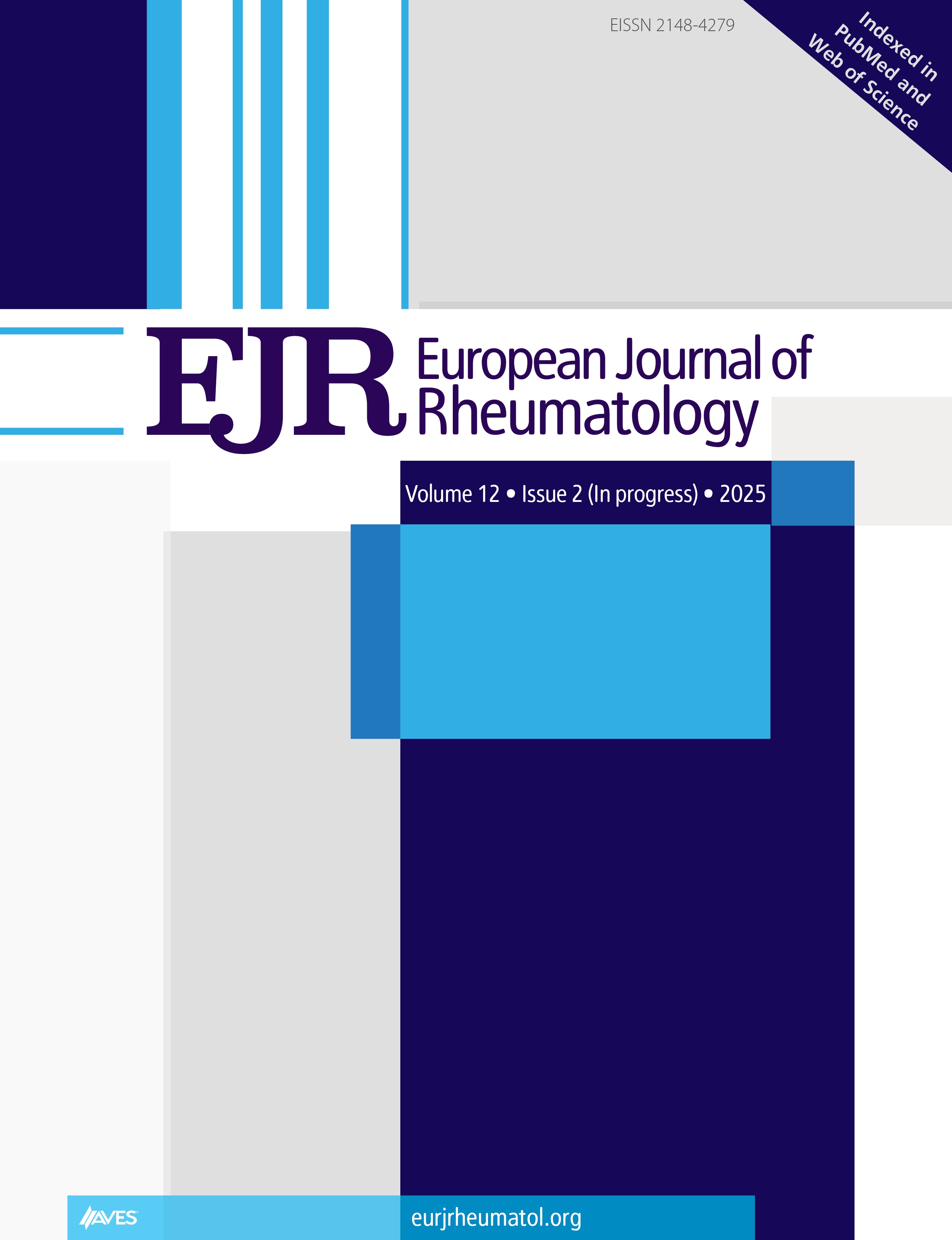Background: We aimed to investigate coronavirus diease 2019 (COVID-19) outcomes in patients with amyloid A protein (AA) amyloidosis secondary to rheumatic diseases and discuss factors associated with disease course.
Methods: A retrospective cohort was formed from adult patients with a diagnosis of AA amyloidosis. In patients with a positive severe acute respiratory syndrome coronavirus 2 polymerase chain reaction (PCR) test, rates of hospitalization, intensive care unit admission and mortality due to COVID-19 were collected from medical records. Data regarding to demographics, comorbidities, laboratory tests, medical treatments, adherence to previous treatments during COVID-19 and treatment administered for COVID-19 were collected from hospital databases and patient reviews.
Results: In 96 patients with AA amyloidosis, 16 had COVID-19 with a positive PCR. Ten (62.5%) patients were hospitalized, 2 (12.5%) were admitted to ICU, 1 (6.25%) was died. Hospitalized patients tended to be older. Comorbidities seemed to be more frequent in hospitalized patients. None of the patients had rapid progression to end-stage renal disease post-COVID-19. Seven patients had pre-COVID-19 and post-COVID-19 proteinuria levels. Three had notable increase in proteinuria after COVID-19 in 2 of which amyloidosis treatment was revised accordingly.
Conclusion: Despite high rates of hospitalization in AA amyloidosis patients, mortality was observed only in 1 patient. Progression of proteinuria requiring treatment adjustment may be an issue in these patients.
Cite this article as: Güven SC, Erden A, Küçük H, et al. Coronavirus disease 2019 outcomes in amyloid A protein amyloidosis secondary to rheumatic conditions and signs of post-coronavirus disease 2019 proteinuria progression. Eur J Rheumatol. 2024;11(1):2-7.



.png)